Akitas have bad reputations, but despite this, they aren’t bad dogs. They do take dedicated people to care for them properly, and Akita owners often have the same common complaints about the breed.
Common complaints about Akitas include that they’re often dog aggressive, have strong prey drives, and are stubborn. They don’t do well in hot climates and are classified by many buildings and insurance agencies as dangerous dogs. Some Akitas guard inappropriately.
In this article, we’ll discuss nine common complaints about Akitas, tips to raise them right, and more.
Are Akitas Bad Dogs?
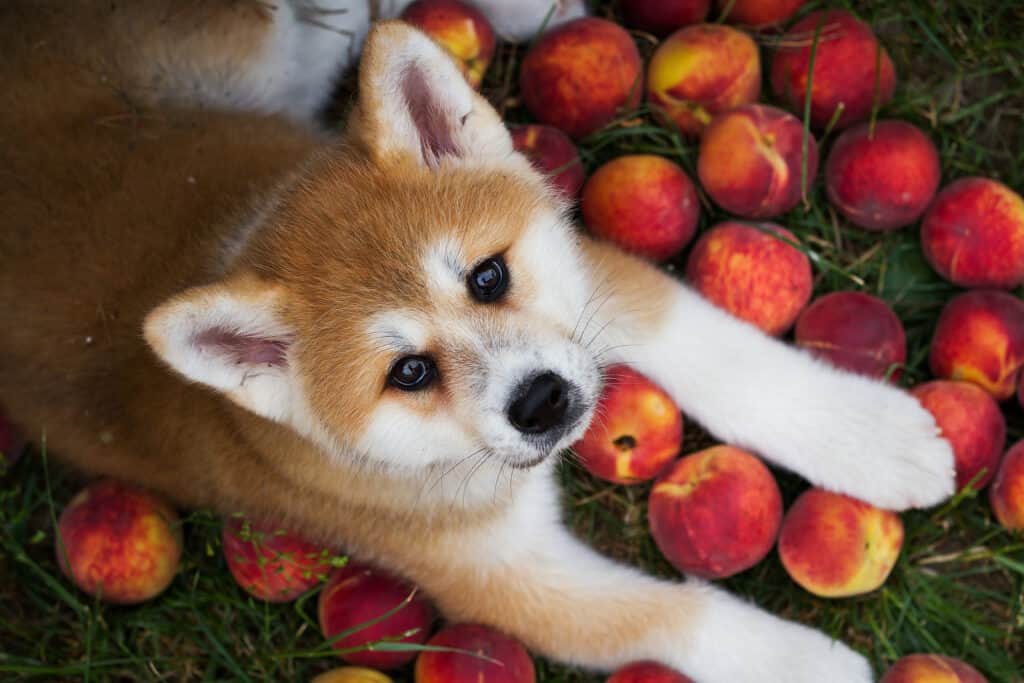
Akitas can be great dogs for the right people.
©Eve Photography/Shutterstock.com
Public perception of Akitas isn’t very positive, but this doesn’t mean they’re bad dogs! However, it does mean that Akitas need good guardians who will care for and train them well.
This means not using aversive training techniques, which promote fearfulness and aggression. It also means socializing your Akita well, teaching them how to behave around others, and managing any dog aggression they may have.
We’ll talk more about the cons of Akitas below, but first, let’s discuss why they might be the right dogs for you!
Akitas do well with experienced dog guardians who have lots of time to spend with their fur babies. These dogs are smart, loyal, and make great guard dogs.
They don’t tend to bark excessively and only require moderate daily exercise, unlike higher-energy dog breeds. And if you care about looks, Akitas are gorgeous pups!
Now, let’s discuss the downsides to this breed to give you a fuller picture of what to expect.
#1: Many Akitas Don’t Get Along with Other Dogs
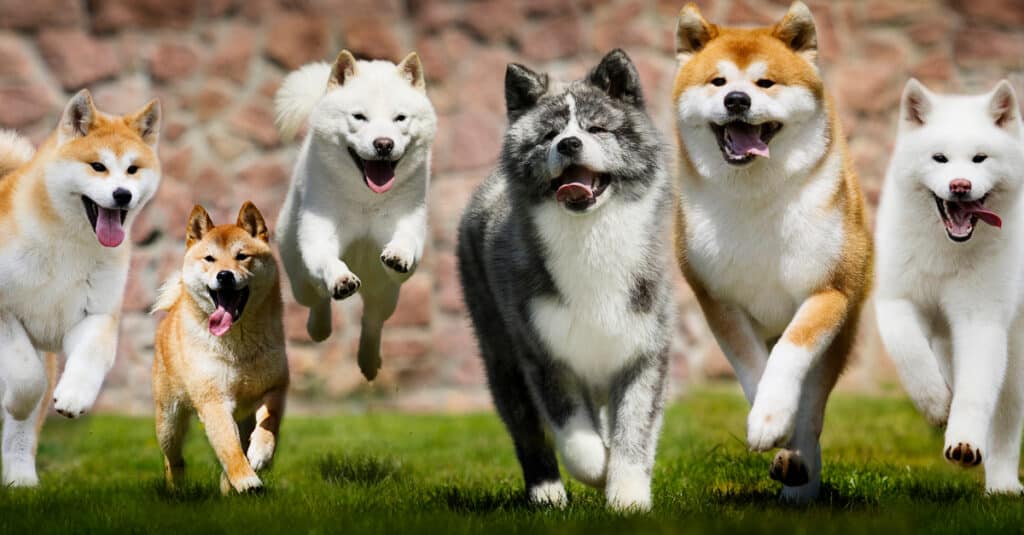
Not all Akitas are dog-friendly.
©Happy monkey/Shutterstock.com
Some Akitas are dog-aggressive and cannot be around other dogs at all. This is something to look out for if you have another dog at home already, or plan to adopt another in the future. A rescue dog who’s known for getting along with others is your best bet in these situations.
Other Akitas are dog-selective, meaning that they do get along with some dogs, but not with others. Oftentimes they may get along with the dogs they grew up with, but not outsiders. Or, they may just be picky about who they’re friends with.
This tendency toward dog aggression shouldn’t be downplayed. Akitas are large, strong dogs that can do a lot of damage, especially to smaller dogs.
If your Akita is dog-aggressive, it’s your job to manage them well. This often means not putting them in situations where they’ll encounter other dogs. It could mean muzzling them in public to lessen the risk or working with a force-free trainer or behaviorist to reduce any misbehavior on walks.
#2: They Need Proper Training
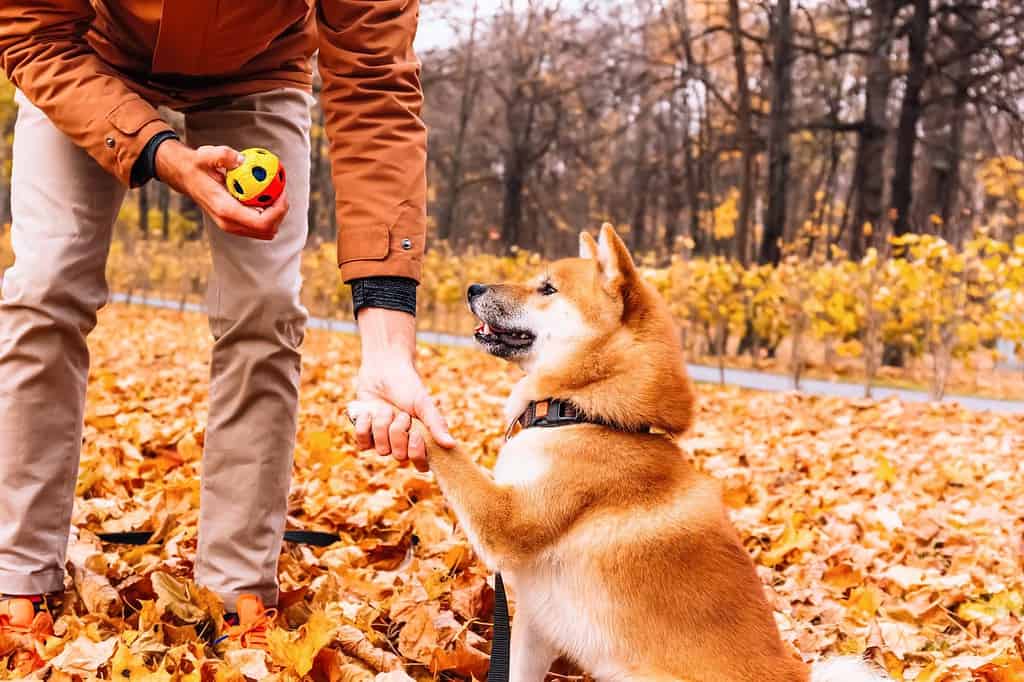
It’s important to train your Akita well.
©Jannissimo/Shutterstock.com
You’ll hear many people claim that strong dogs like Akitas need a firm hand, for you to show them who’s boss, or to have very strict household rules. This is called dominance theory, and it’s long been debunked.
What Akitas truly need is a loving, patient trainer who will also, of course, enforce rules in appropriate ways. Avoid aversive tools and techniques, and instead use force-free training methods such as positive reinforcement, setting them up for success whenever possible, and redirecting misbehavior to more suitable outlets.
Socialize your Akita well from a young age. This means building up positive experiences around new people, places, and things. It also means getting them used to handling like they may experience during grooming or at the vet’s office.
It doesn’t mean your Akita needs to directly meet a ton of people, or play with many unknown dogs–this is actually not recommended, especially for Akitas due to their tendency toward dog aggression.
#3: They Can be Stubborn
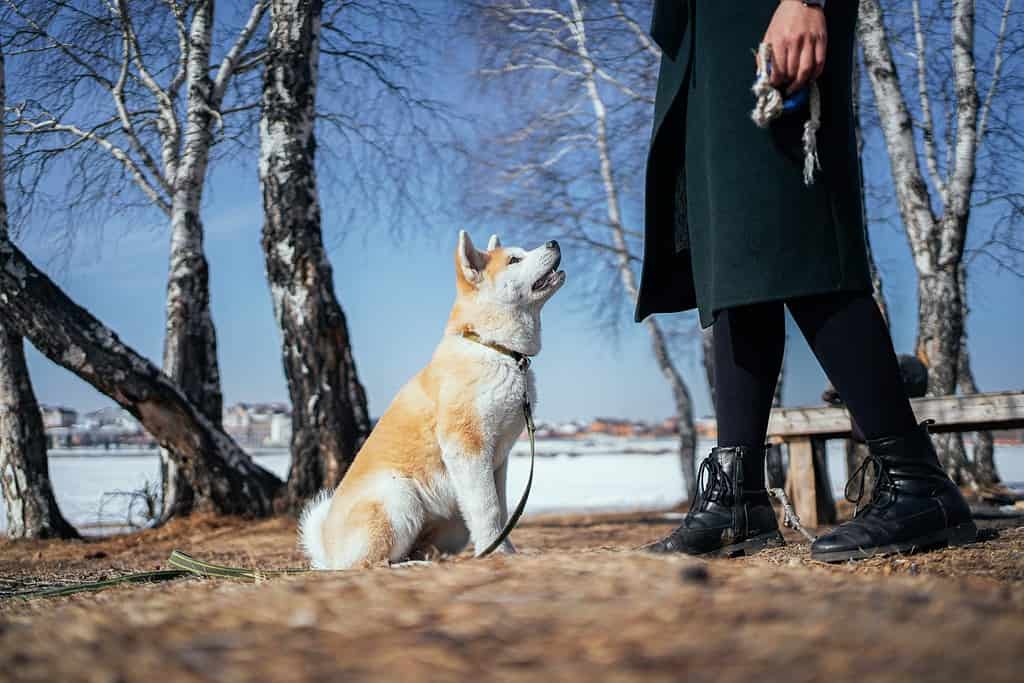
Training an Akita requires patience.
©Danila Shtantsov/Shutterstock.com
Akitas aren’t as easygoing as some other dog breeds, like the super-agreeable golden retrievers. They can be very stubborn and have a mind of their own, which is only amplified by their intelligence.
Rather than try to force or out-stubborn your Akita, make training more fun. When you need them to do something, turn it into a game. Act excited, have their favorite treats on hand, and offer lots of praise.
If your dog is struggling with something, such as having their nails trimmed, use a slow desensitization process to build positive associations.
#4: Akitas Have Strong Guarding Instincts
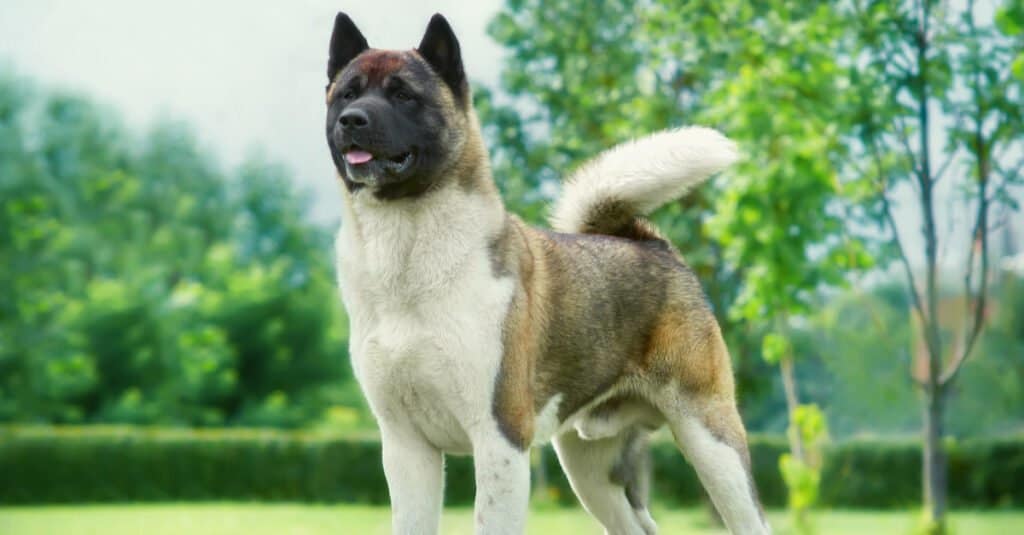
Akitas were bred to guard.
©Kseniia Kolesnikova/Shutterstock.com
An Akita’s guarding instincts are what they were bred for. Ideally, they’ll intrinsically know what’s a threat, and what isn’t, and act accordingly. However, this isn’t always how things work.
This is part of the reason that socialization is so important. Fearful dogs with a strong instinct to guard can become reactive and may show aggression toward strangers they perceive as threats to themselves, their families, or their homes.
Often, Akitas are wary of strangers or ignore them completely. It’s much less common for them to show affection toward people they don’t know–they save that for family!
#5: They’re Often Classified as Dangerous Dogs
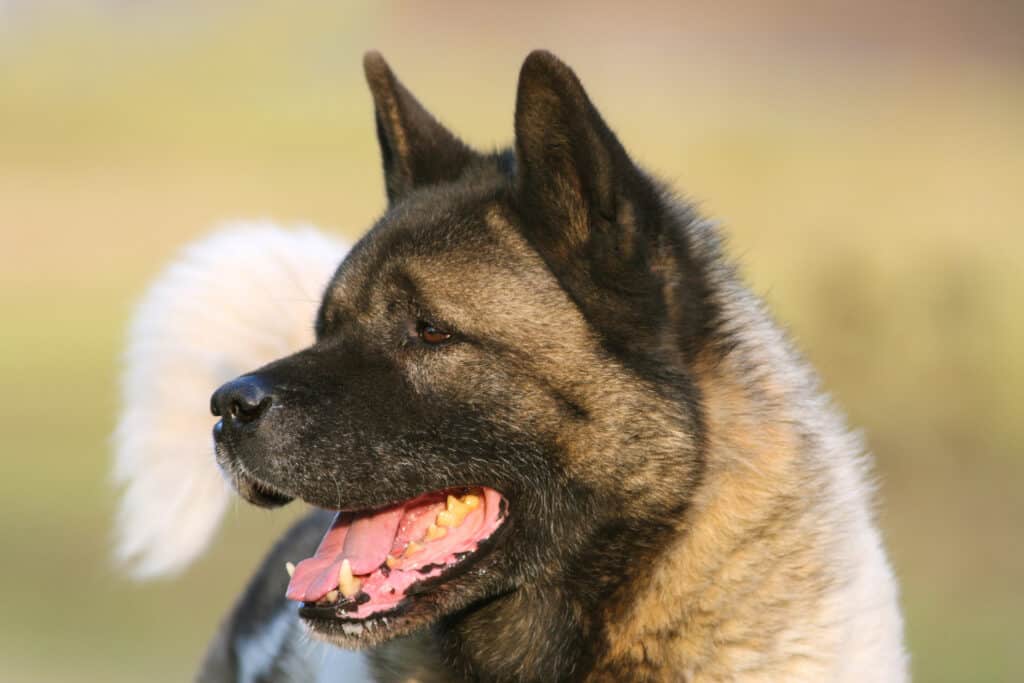
Even if your Akita is sweet, you’ll likely face breed discrimination from others.
©mirceax/ via Getty Images
In public, people may fear your Akita–even if they’re a total sweetheart. Neighbors may have complaints about Akitas even if they behave well. You may also run into trouble finding housing or insurance.
Many apartment complexes, insurance agencies, and even cities classify Akitas as dangerous dogs. This may restrict where you’re able to live in the future or require you to pay more for insurance than you would otherwise.
#6: Akitas Have Strong Prey Drives
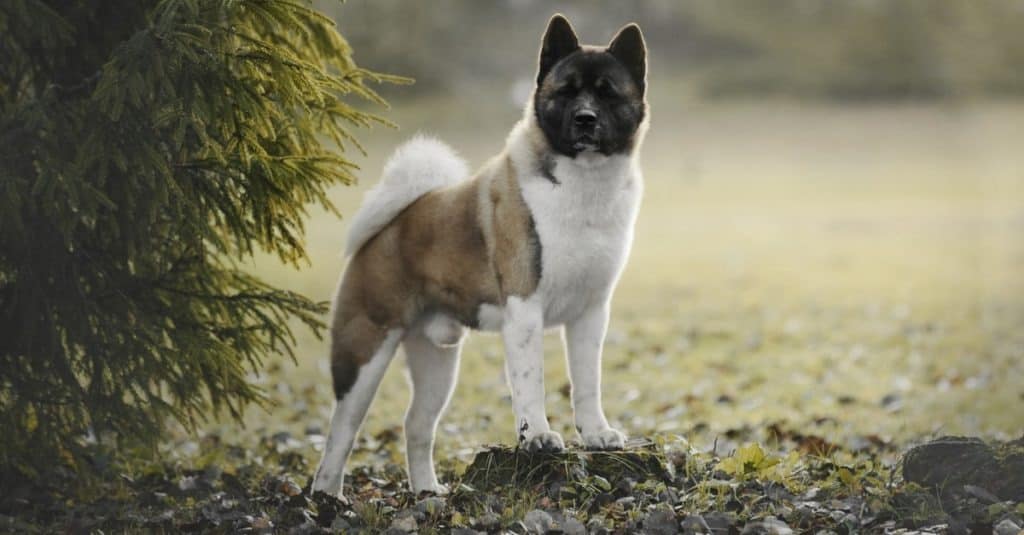
Akitas were also bred to hunt and will likely chase small animals.
©Erika Tcogoeva/Shutterstock.com
It’s important to keep your Akita on a leash or enclosed behind a fence at all times. These dogs love to chase small animals, which can include birds, squirrels, and other wildlife alongside smaller dogs or cats.
#7: They Shed a Ton!
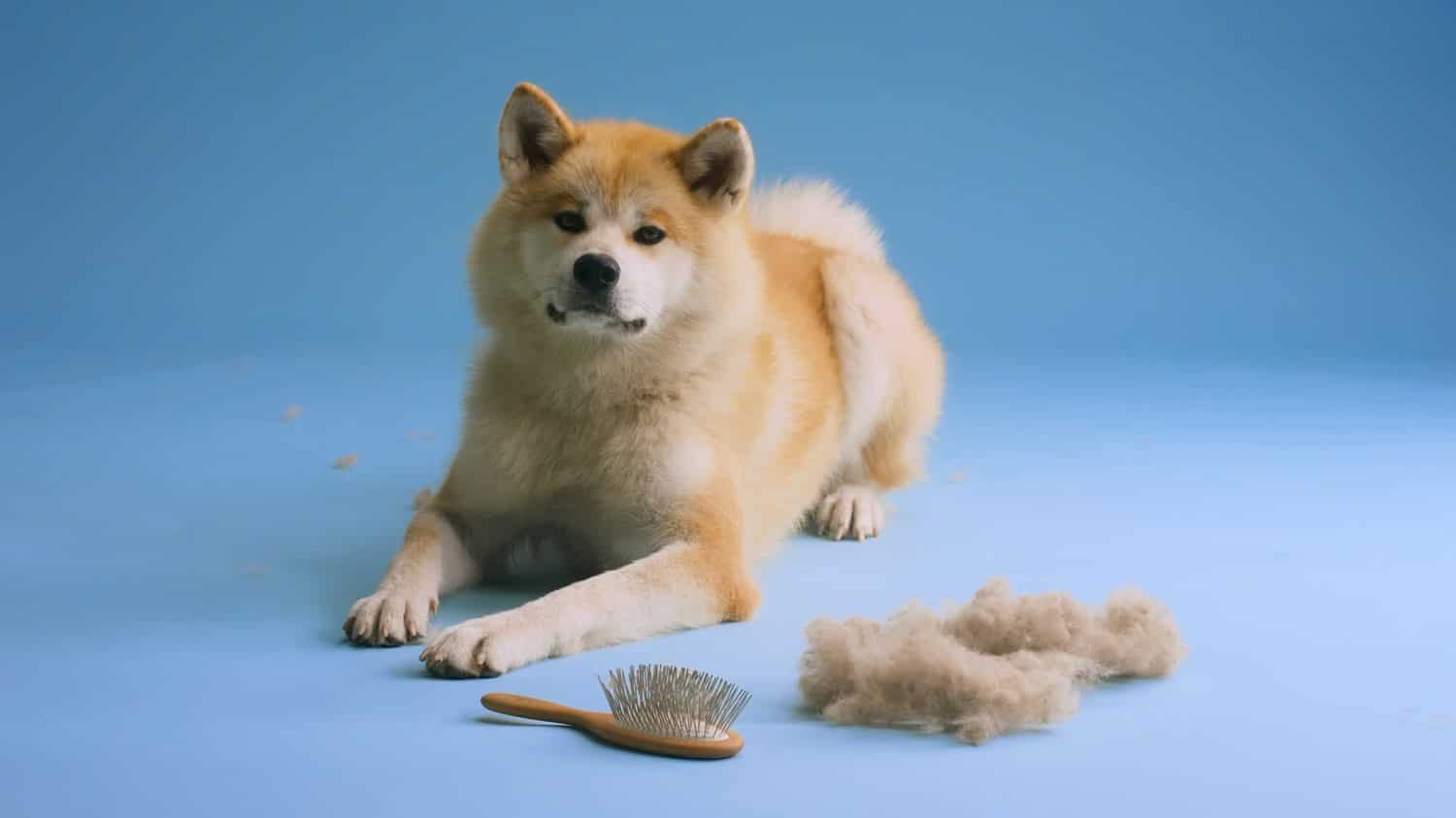
Akitas shed plentifully, all year round!
©MrClips/Shutterstock.com
Akitas don’t just shed individual strands of fur like you might expect from a Labrador. During shedding season, which occurs twice a year in the spring and fall, these dogs shed in clumps! You’ll be able to pull tufts of dead fur from their coat. This is one of the top complaints about Akitas.
This also means that regular brushing is a must, both to reduce the amount of shed fur you find around the house and to keep your dog’s coat healthy. If not brushed often enough, Akitas may develop painful mats in their fur.
#8: They Don’t do Well in the Heat
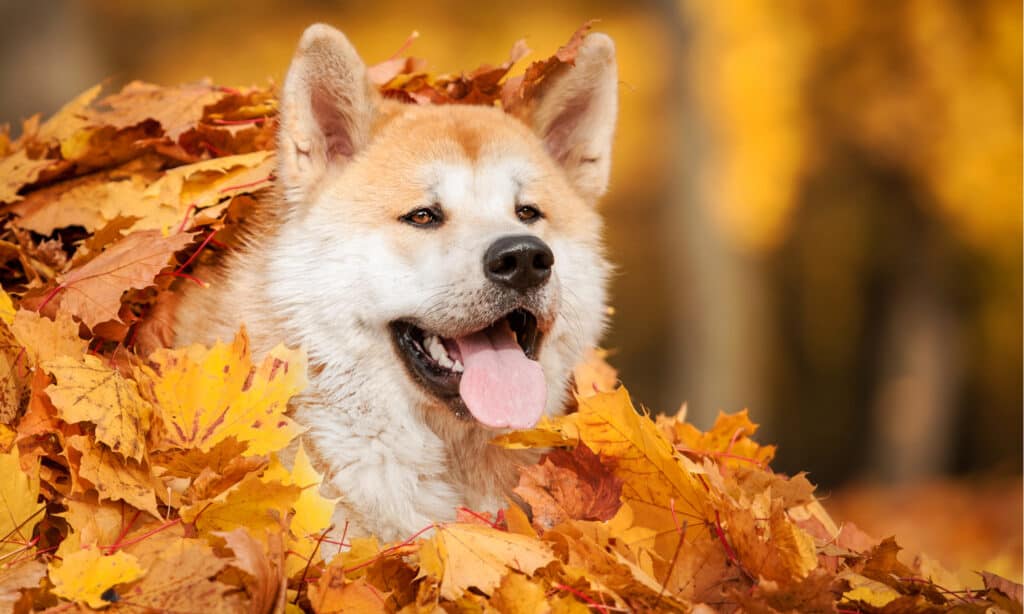
Akitas prefer cool climates.
©Rita_Kochmarjova/Shutterstock.com
Lastly, Akitas don’t tend to like hot weather. Their thick coats are built for the snow, and they can easily overheat in the summer months.
If you live in a hot climate, you may want to look into breeds with thinner coats such as Chihuahuas or Italian Greyhounds.
#9: Akitas are Prone to Health Problems
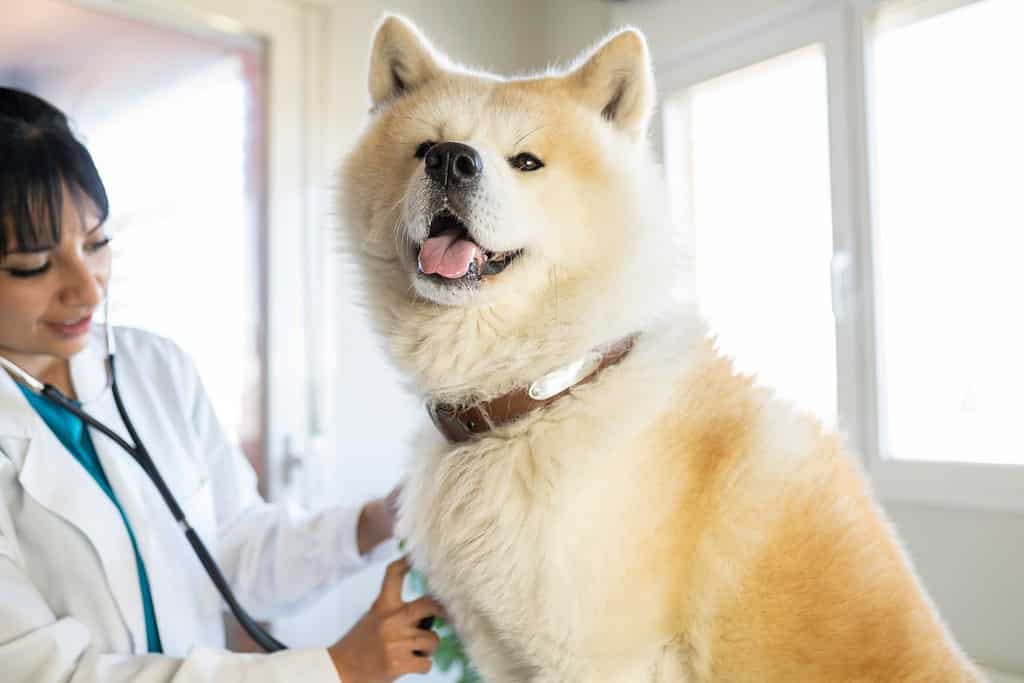
Adopting from a reputable breeder lowers your Akita’s chances of developing genetic health problems.
©PintoArt/Shutterstock.com
Akitas are prone to some genetic health problems. Reputable breeders should stay up to date on recommended genetic health tests for both parents, and both should have CHIC numbers to verify this testing.
Some health concerns to watch for include:
- Hip and elbow dysplasia
- Eye conditions
- Thyroid disease
- Luxating patella
To prepare for illness and medical emergencies for your Akita, it’s best to have a large savings account prior to adoption or to purchase a pet insurance plan. Vet costs are one of the most common complaints about Akitas!
Overall, Akitas aren’t the right dogs for most people. They’re a big responsibility due to their guarding tendencies, prey drives, and tendency toward dog aggression. If you can handle their needs and train them well, though, Akitas are fiercely loyal and affectionate companions.
The photo featured at the top of this post is © Jannissimo/Shutterstock.com
Ready to discover the top 10 cutest dog breeds in the entire world?
How about the fastest dogs, the largest dogs and those that are -- quite frankly -- just the kindest dogs on the planet? Each day, AZ Animals sends out lists just like this to our thousands of email subscribers. And the best part? It's FREE. Join today by entering your email below.
Thank you for reading! Have some feedback for us? Contact the AZ Animals editorial team.







